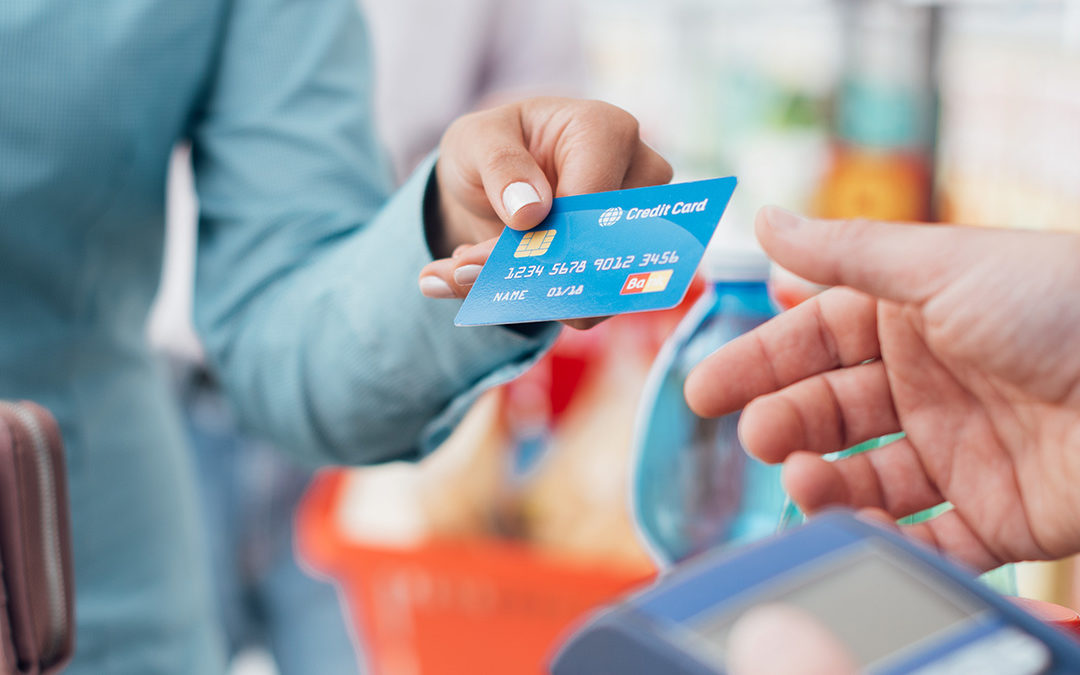Credit cards make it easy to track your spending, dispute erroneous charges, earn points, build up credit scores, and pay your bills on time. They are all good and no bad… that is if you can pay your credit card bill in full every month. Unfortunately, if you can’t pay off your full credit card statement every month, you’ll be facing some of the highest interest rates out there — as high as 36%!
You may have noticed your credit card balance shoot up over the holidays. This is normal, but the credit card companies are expecting their money back. If you want a debt-free 2020, learn everything you need to know about credit card debt, including how to make the most of credit cards while avoiding high credit card interest rates.
How to Make the Most of Your Credit Card
-
Choose the right credit card
Thoroughly research the credit card you are intending to sign up for to make sure it makes sense for you and your lifestyle. If you don’t pay off your credit card in full every month, the number one thing to consider is the interest rate, followed by relevant rewards and benefits. For instance, if you drive a lot, you may want to find a credit card that saves you money on gas. You can also find attractive rewards programs that give you cash back, airline miles, and other free stuff.
Make sure you read all of the fine print, including lost card liability, credit shield, purchase protection, insurance, and extended warranties.
There are four main types of credit cards to consider:
- Balance transfer cards
- Rewards credit cards
- Airline credit cards
- Business credit cards
Beware of 0% introductory APR promotions. You want to pay attention to the APR that kicks in once the promotional period is over. It’s not a good idea to open and close a lot of credit cards, so choose a card that you can hold for a long time. Speak with a debt specialist and shop around before you close an old credit card for a new one.
-
Use your rewards
Most credit cards offer more than one reward. Of course, cash back and flight miles are great, but did you know that credit cards also offer amazing consumer protection?
If you are trying to return a purchase but the warranty has expired, check with your credit card company. Many cards will automatically extend the warranty on your purchases.
Call your credit card company and ask them to email you a full list of the rewards you are eligible for.
Credit Card Mistakes to Avoid
- Speak with a debt specialist before closing your account. If you have no debt, however, closing a credit card account shouldn’t affect your credit.
- Learn how to assess your income and costs to avoid damaging your credit score.
- Avoid trying to make money off of introductory 0% APR credit cards. Some people sign up for new credit cards for the 0% APR so they can borrow money from the card and invest it in savings accounts, short-term CDs, and stocks. They plan on paying the money back while making a profit off of interest, but this is a bad idea. Sure, you might be able to make a few hundred dollars a year, but the risks to your time and credit score just aren’t worth it. Focus on long-term financial security.
- Avoid store-branded credit cards. They often have the highest interest rates and the lowest credit limits.
How to Pay Off Credit Card Debt
-
Make a plan
First, you want to make a list of all your credit cards along with their interest rates and due dates. Then, you’ll want to choose either the “snowball method” or “avalanche method” for paying them off. Basically, the snowball method tackles the lowest balance card first while the avalanche method starts with the highest interest card first. Whichever one you choose, start making an explicit plan now to pay off that credit card debt.
-
Set a budget
When you’re in credit card debt, it’s important to be intentional about every single dollar that comes in and goes out. To help you attain your debt-free goal, consider using the envelope method or at least some kind of budget. Learn how to set spending limits for yourself.
-
Grow your savings accounts
This is easier said than done, but the value that comes from the peace of mind of being able to afford an emergency is worth a lot more than the money itself.
Unfortunately, it’s estimated that 6 out of 10 Americans have less than $1,000 in savings, according to a 2019 Bankrate survey. Learn how to save money while paying off debt. Learn how to use sub-savings accounts to save for emergencies and life’s important moments.
Debt Harms More Than Your Credit Score
Being in debt isn’t just bad for credit scores and late fees, it can also do a lot of damage to your mental and physical health. The quicker you get out of debt, the healthier you will be. Learn more about the impact of debt stress on your health and wellbeing.
Speak with a debt specialist at DebtBlue for FREE. We can assess your financial situation and discuss options for getting out of debt.

